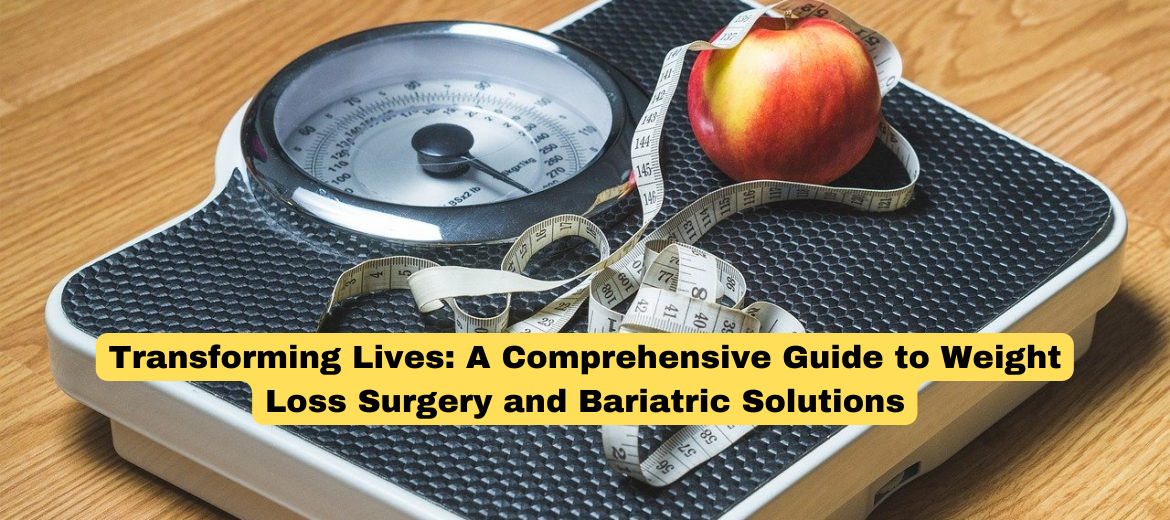For individuals struggling with obesity and its associated health risks, weight loss surgery, also known as bariatric surgery, can be a life-changing solution. Bariatric procedures are designed to help people achieve significant weight loss, improve their health, and enhance their overall quality of life. This comprehensive guide explores the world of weight loss surgery, covering topics such as the different types of bariatric procedures, their benefits and risks, the pre-operative and post-operative journey, dietary guidelines, and much more. By the end of this blog, you’ll have a deep understanding of weight loss surgery as a viable option for those seeking to transform their health and well-being.
Section 1: The Obesity Epidemic and Its Impact
1.1 The Growing Health Crisis Examine the global obesity epidemic and its implications for public health.
1.2 Health Risks of Obesity Highlight the health risks associated with obesity, including diabetes, heart disease, and joint problems.
Section 2: Introduction to Weight Loss Surgery
2.1 What Is Bariatric Surgery? Define bariatric surgery and its role in obesity treatment.
2.2 Who Is a Candidate? Discuss the criteria for bariatric surgery and the importance of a comprehensive evaluation.
Section 3: Types of Bariatric Procedures
3.1 Gastric Bypass Surgery Explain the gastric bypass procedure, its mechanism, and expected outcomes.
3.2 Sleeve Gastrectomy Discuss sleeve gastrectomy as a popular bariatric surgery option and its benefits.
3.3 Adjustable Gastric Banding (Lap-Band) Examine the lap-band procedure and its role in weight loss.
3.4 Biliopancreatic Diversion with Duodenal Switch (BPD/DS) Highlight the BPD/DS procedure and its effectiveness for extreme cases of obesity.
Section 4: Benefits and Risks of Weight Loss Surgery
4.1 Weight Loss and Health Improvements Discuss the significant weight loss and health improvements achieved through bariatric surgery.
4.2 Potential Risks and Complications Examine the risks and complications associated with weight loss surgery, including infection and nutritional deficiencies.
Section 5: Preparing for Weight Loss Surgery
5.1 Medical Evaluation Detail the comprehensive medical evaluation process before surgery.
5.2 Mental and Emotional Preparation Highlight the importance of mental and emotional readiness for surgery.
Section 6: The Surgical Journey
6.1 The Day of Surgery Explain what to expect on the day of surgery, including anesthesia and recovery.
6.2 Hospital Stay Discuss the typical hospital stay and immediate post-operative care.
Section 7: Post-Operative Recovery and Lifestyle Changes
7.1 Recovery Period Examine the post-operative recovery period, including dietary progression and activity levels.
7.2 Dietary Guidelines Discuss dietary guidelines after surgery, including portion control and nutrient intake.
Section 8: Long-Term Success and Maintenance
8.1 Behavioral Changes Highlight the importance of long-term behavioral changes, including exercise and healthy eating habits.
8.2 Support Systems Discuss the role of support groups and healthcare professionals in maintaining weight loss success.
Section 9: Addressing Common Questions and Concerns
9.1 Hair Loss and Nutritional Supplements Explain common concerns such as hair loss and the need for nutritional supplements.
9.2 Pregnancy After Bariatric Surgery Discuss considerations for women who plan to become pregnant after surgery.
Section 10: The Emotional and Psychological Impact
10.1 Emotional Changes Examine the emotional and psychological changes that may occur after bariatric surgery.
10.2 Counseling and Support Discuss the importance of counseling and support in addressing emotional challenges.
Section 11: The Future of Bariatric Surgery
11.1 Advances in Bariatric Technology Explore emerging technologies and techniques in bariatric surgery.
11.2 Personalized Medicine Discuss the potential for personalized treatment plans based on genetic and metabolic factors.
Conclusion:
Weight loss surgery offers a path to transformation for individuals struggling with obesity and its associated health risks. Whether you’re considering bariatric surgery, a healthcare professional, or someone interested in the field of weight loss surgery, understanding the journey, benefits, and challenges is essential. This comprehensive guide has equipped you with knowledge about the types of bariatric procedures, their benefits and risks, the pre-operative and post-operative phases, dietary guidelines, and more. Embracing the potential of weight loss surgery is a journey toward improved health, increased confidence, and a brighter, healthier future for those seeking lasting transformation.
